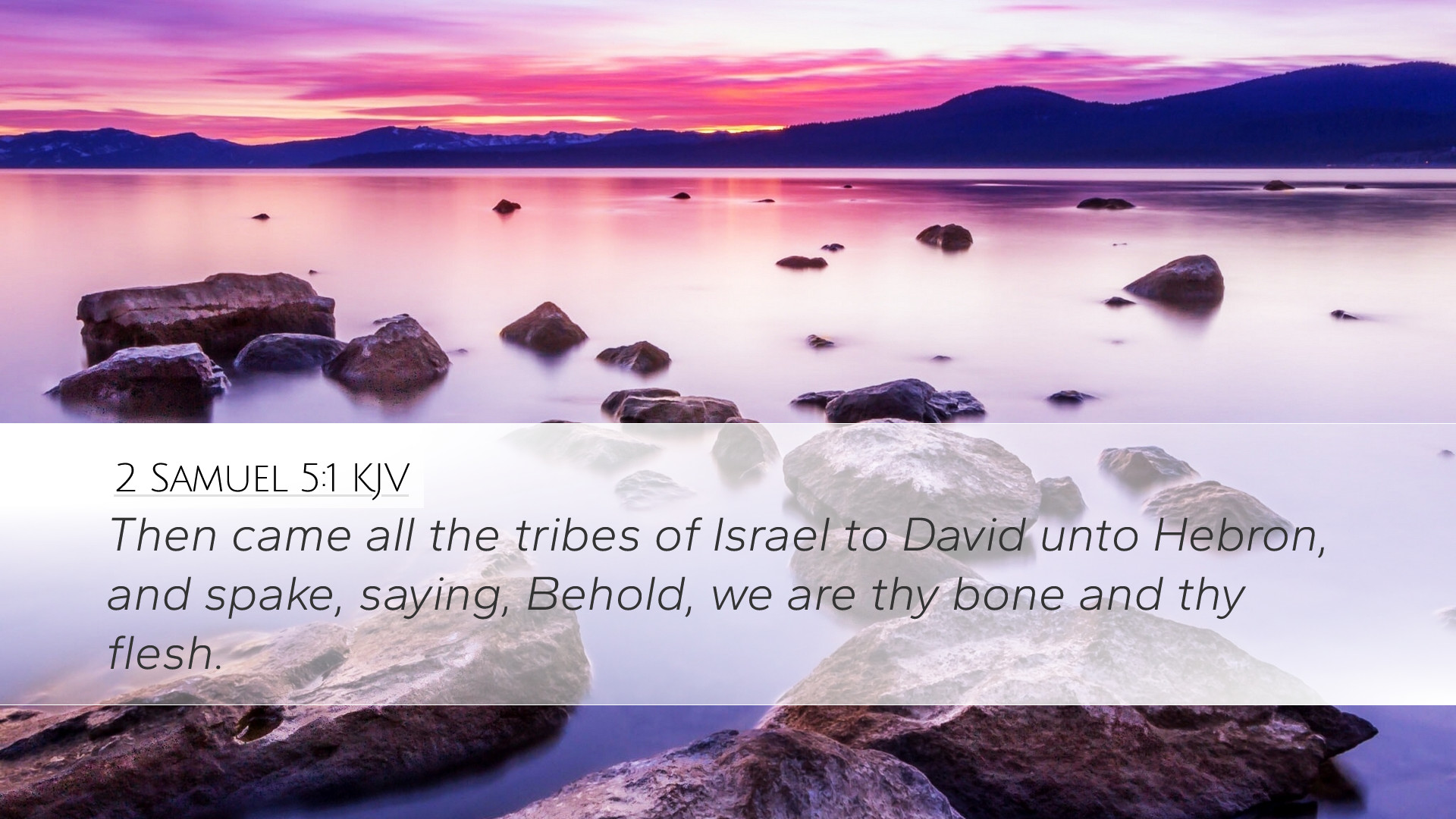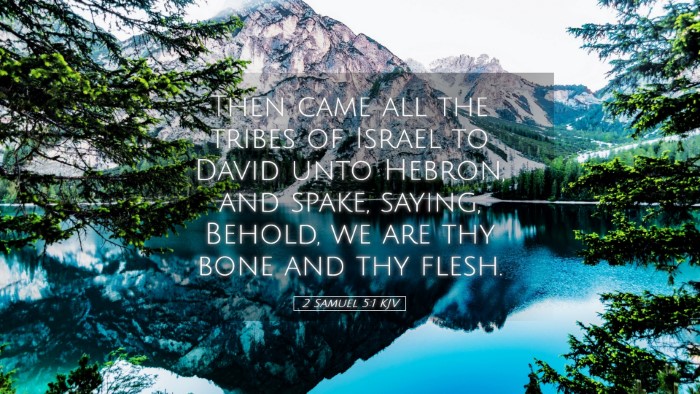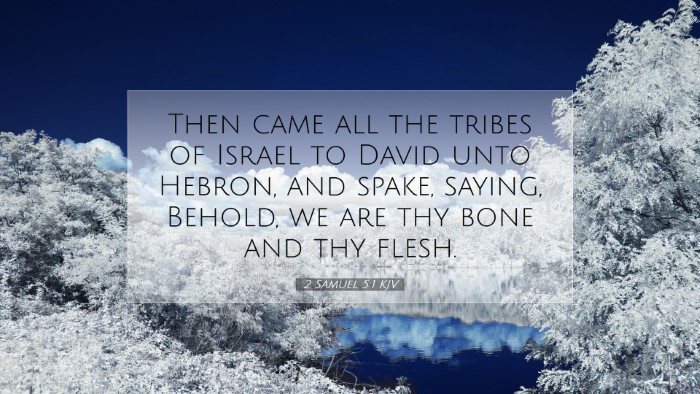Commentary on 2 Samuel 5:1
Verse Context: 2 Samuel 5:1 states, "Then all the tribes of Israel came to David at Hebron and said, 'Behold, we are your bone and flesh.'
Introduction
This pivotal moment in 2 Samuel marks the unification of Israel under David’s kingship. This verse encapsulates both the political and spiritual significance of David's rise to power and provides insights into God's sovereign hand in the unfolding of Israel’s monarchy.
Commentary Insights
Drawing from the works of Matthew Henry, Albert Barnes, and Adam Clarke, we can derive a rich understanding of this verse.
1. Historical Context
Matthew Henry emphasizes that this verse is significant in the larger narrative of David's ascension to the throne. After the death of Saul, the tribes of Israel initially faced fragmentation and discord. The people's coming to David at Hebron signifies a collective longing for a strong leader during a tumultuous time.
Albert Barnes notes that this gathering of tribes also reflects the recognition of David’s rightful claim due to his lineage (the tribe of Judah) and past leadership over parts of Israel. It highlights the shift from a divided kingdom to one that unified under a king who embodied both strength and divine favor.
2. The Declaration of Loyalty
The phrase “we are your bone and flesh” carries profound implications. Adam Clarke points out that this expression signifies kinship and loyalty but also implies a deeper, spiritual bond amongst the people of Israel. They recognized David not only as their leader but as one of their own, coming from the same bloodline and tribal background.
Matthew Henry further reflects on how this declaration signifies unity and a communal identity that transcended previous divisions. Their acknowledgment of David serves as a powerful reminder of the necessity of unity for effective leadership and governance.
3. Divine Selection
In this moment, it is also essential to recognize God's hand in David's rise. Albert Barnes notes the importance of God’s promise to David that he would be the shepherd of His people. The Lord’s sovereign choice is evident in the circumstances surrounding David’s coronation, reinforcing the notion that God orchestrates history according to His divine plan.
4. Implications for Leadership
This verse provides a profound lesson on leadership dynamics. Matthew Henry observes that the success of leaders often rests on their ability to connect with those they lead. David’s acceptance highlights his relational approach, fostering an environment where loyalty can flourish.
Adam Clarke notes that leaders must be recognized and accepted by the people; this is crucial for stability. The people’s acceptance of David emphasizes the relational aspect of leadership in biblical contexts, where authority is intertwined with community consent.
5. Theological Implications
This moment is not just a political convergence; it represents a theological awakening. Albert Barnes suggests that the unification under David prefigures the ultimate kingship of Christ, connecting the biblical narrative to New Testament themes of the Kingdom of God. David’s leadership foreshadows the nature of Christ as the Good Shepherd who gathers His flock.
Matthew Henry further adds that this gathering serves as a reminder of the church's unity under Christ. The spiritual inheritance of being 'bone and flesh' of Christ makes this connection relevant for the body of believers who must act in unity, reflecting Christ’s character in a fractured world.
Conclusion
In summary, 2 Samuel 5:1 encapsulates the pivotal milestone in David’s kingship, illustrating the themes of unity, divine selection, and effective leadership, along with profound theological implications that resonate with the New Testament. As pastors, students, theologians, and Bible scholars reflect on this verse, it serves as a rich text for understanding God's providential guidance in human affairs and the eternal truth of Christ's reign over His people.
Reflection Questions
- What does the unity expressed by the tribes of Israel teach us about community and leadership in the church today?
- How can we balance divine authority with the need for communal support in our leadership roles?
- In what ways does David’s story reflect the larger narrative of God’s redemption plan leading to Christ?


